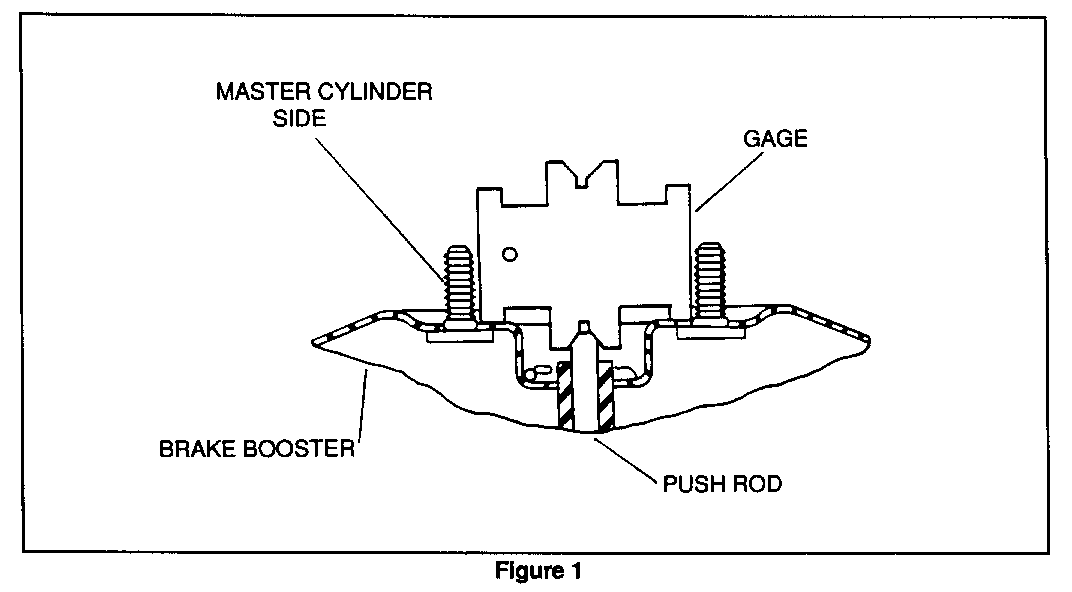BRAKE BOOSTER PUSH ROD HEIGHT GAGE (REVISED GAGE)

SUBJECT: BRAKE BOOSTER PUSH ROD HEIGHT GAUGE (REVISED GAUGE)
VEHICLES AFFECTED: 1982-1989 C/K, S/T, R/V AND M
A new brake booster push rod height gauge (J37839) has been approved by Delco Moraine. The new gauge is an essential tool and replaces tool J22647, which should be scrapped. The new gauge will be shipped to dealers in the May-June 1989 time frame.
The reason for the new gauge is twofold:
1. The new gauge locates on the chamfered sides of the booster push rod rather than the top of the rod. This is a more accurate reference point because the push rod sides initiate the contact with the master cylinder primary piston (See Figure 1).
2. The maximum and minimum push rod length tolerance was revised to reduce push rod free travel.
IMPORTANT: These design changes were made for all 1989 Delco Moraine vacuum boosters. The new gauge can be used on all pre-1989 models with Delco Moraine vacuum boosters.
Gauge Procedure:
1. With master cylinder removed and the brake booster still attached to the vehicle, gauge the booster with 85.0 kPa (25 In. Hg.) vacuum or maximum engine vacuum.
IMPORTANT: Booster can be gaged without being installed on the vehicle, if a suitable vacuum source is available.
2. Position gauge (J37839) over piston rod as shown in Figure 1.
3. Check for both the maximum and minimum rod length.
4. If the rod length does not fall between the maximum and minimum dimensions, replace with adjustable push rod P/N 5469384.
Parts are currently available from CANSPO.

General Motors bulletins are intended for use by professional technicians, not a "do-it-yourselfer". They are written to inform those technicians of conditions that may occur on some vehicles, or to provide information that could assist in the proper service of a vehicle. Properly trained technicians have the equipment, tools, safety instructions and know-how to do a job properly and safely. If a condition is described, do not assume that the bulletin applies to your vehicle, or that your vehicle will have that condition. See a General Motors dealer servicing your brand of General Motors vehicle for information on whether your vehicle may benefit from the information.
